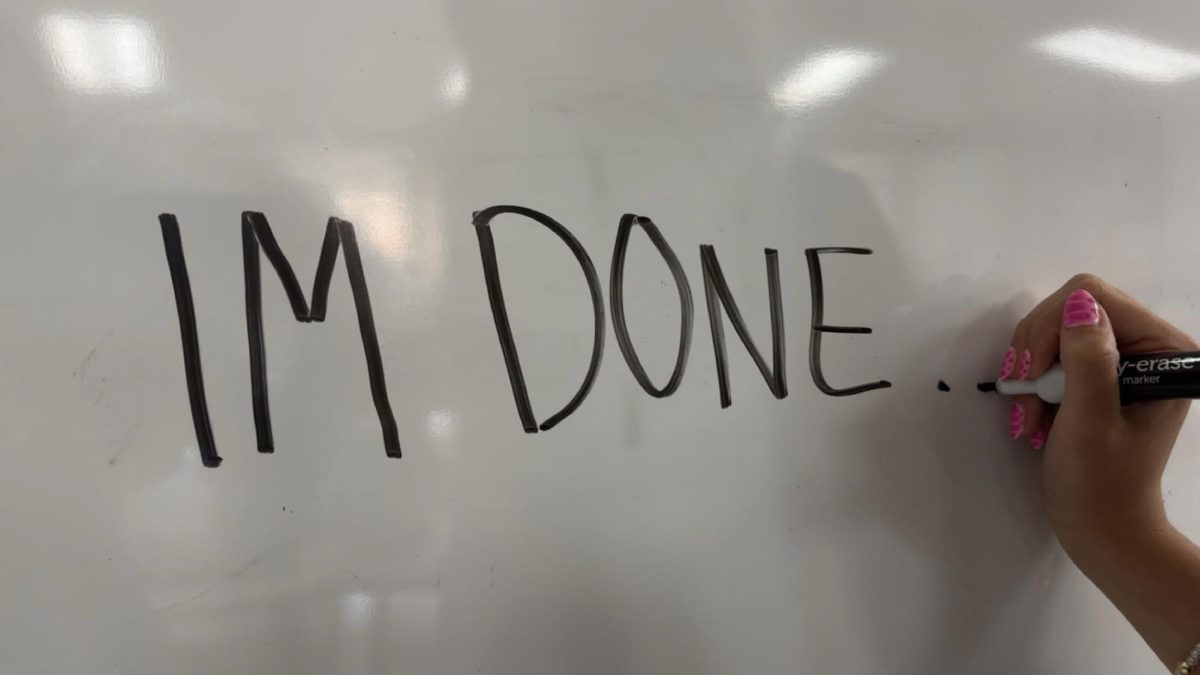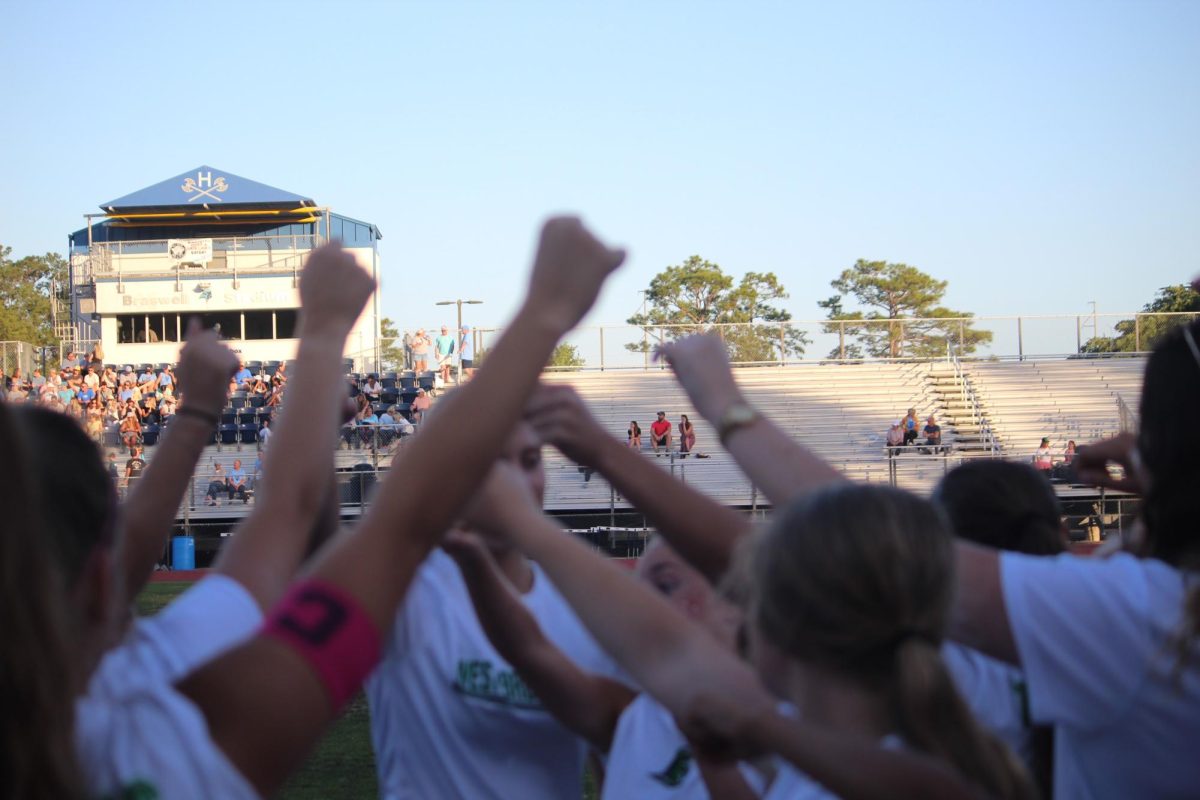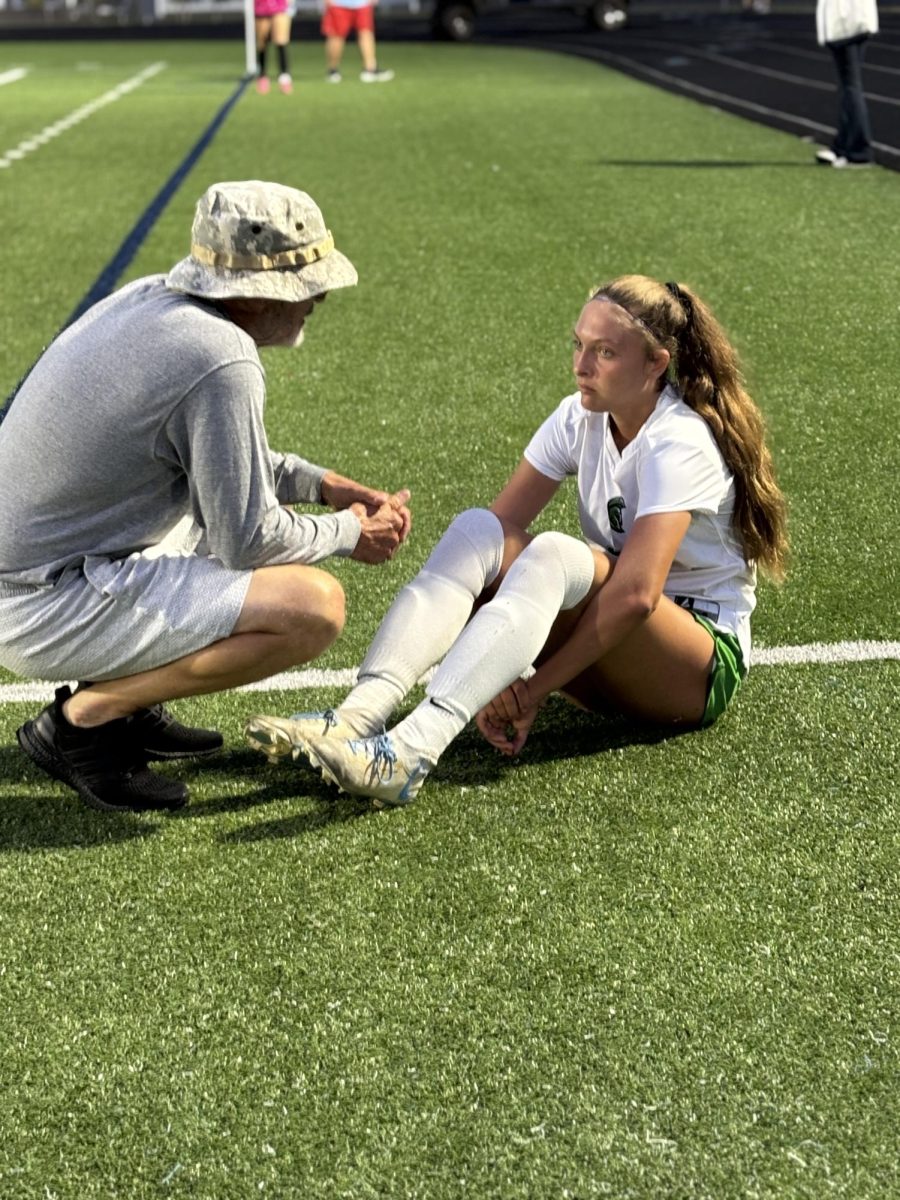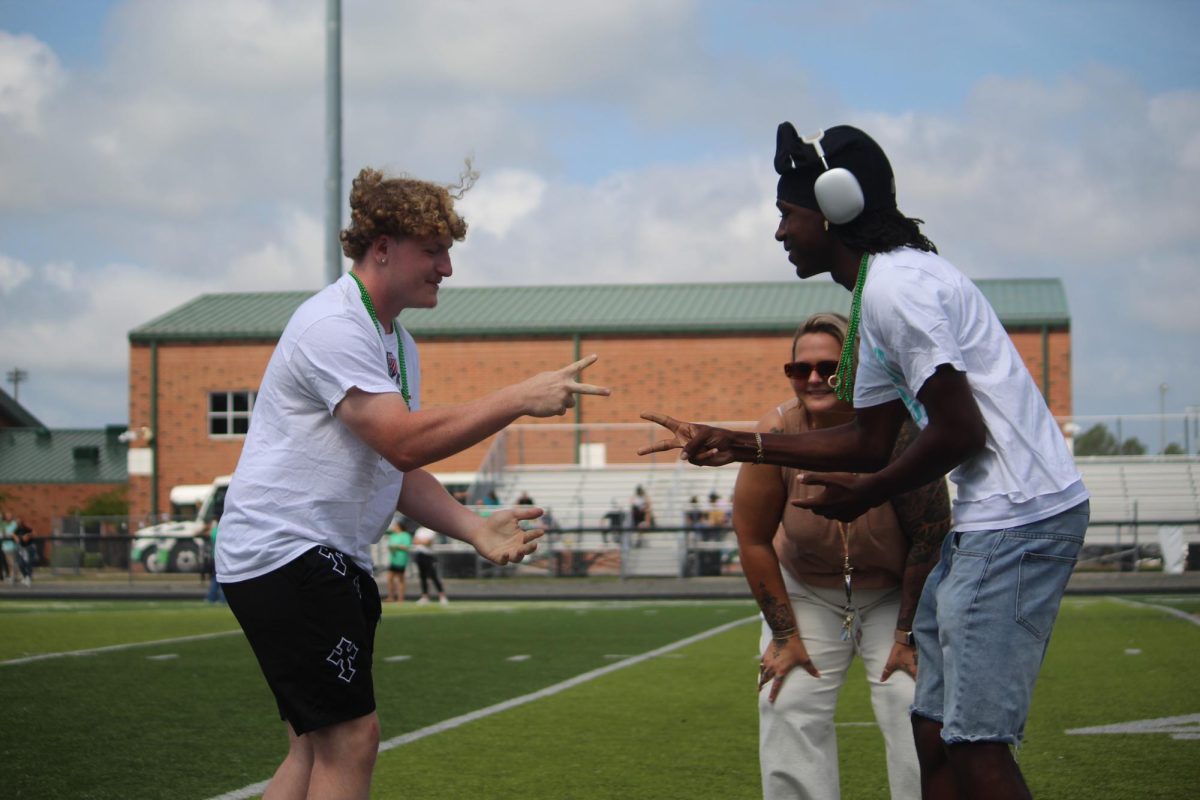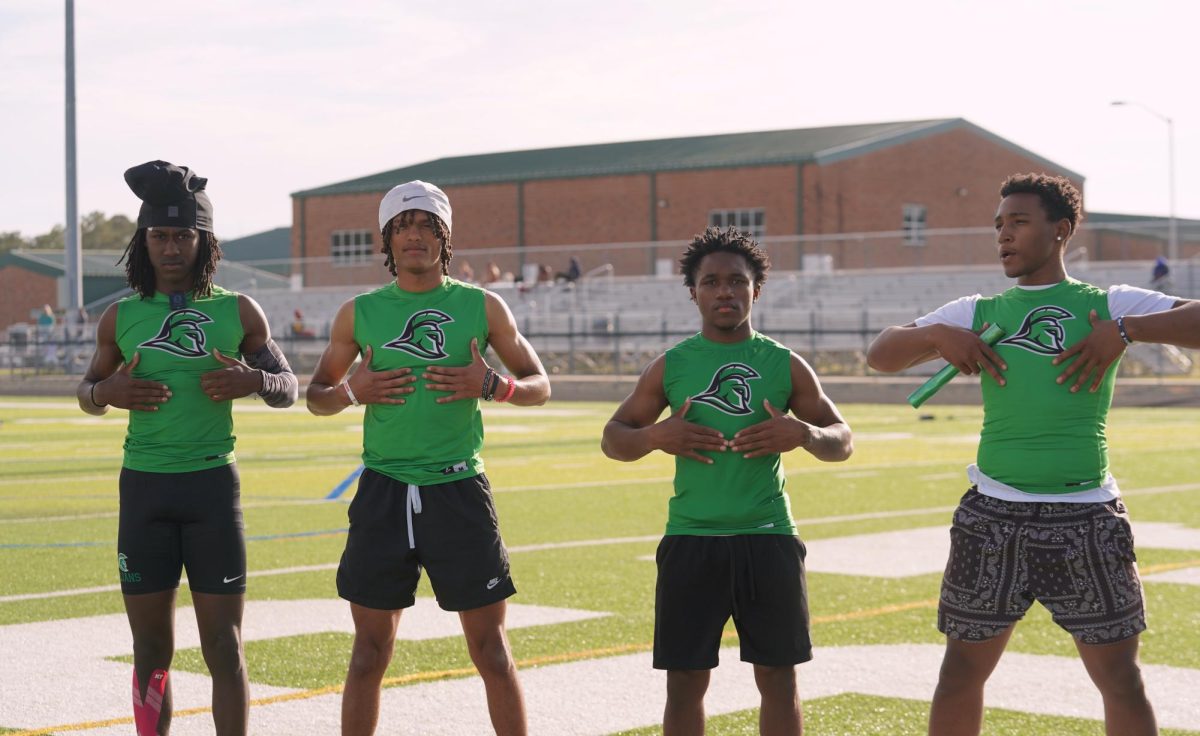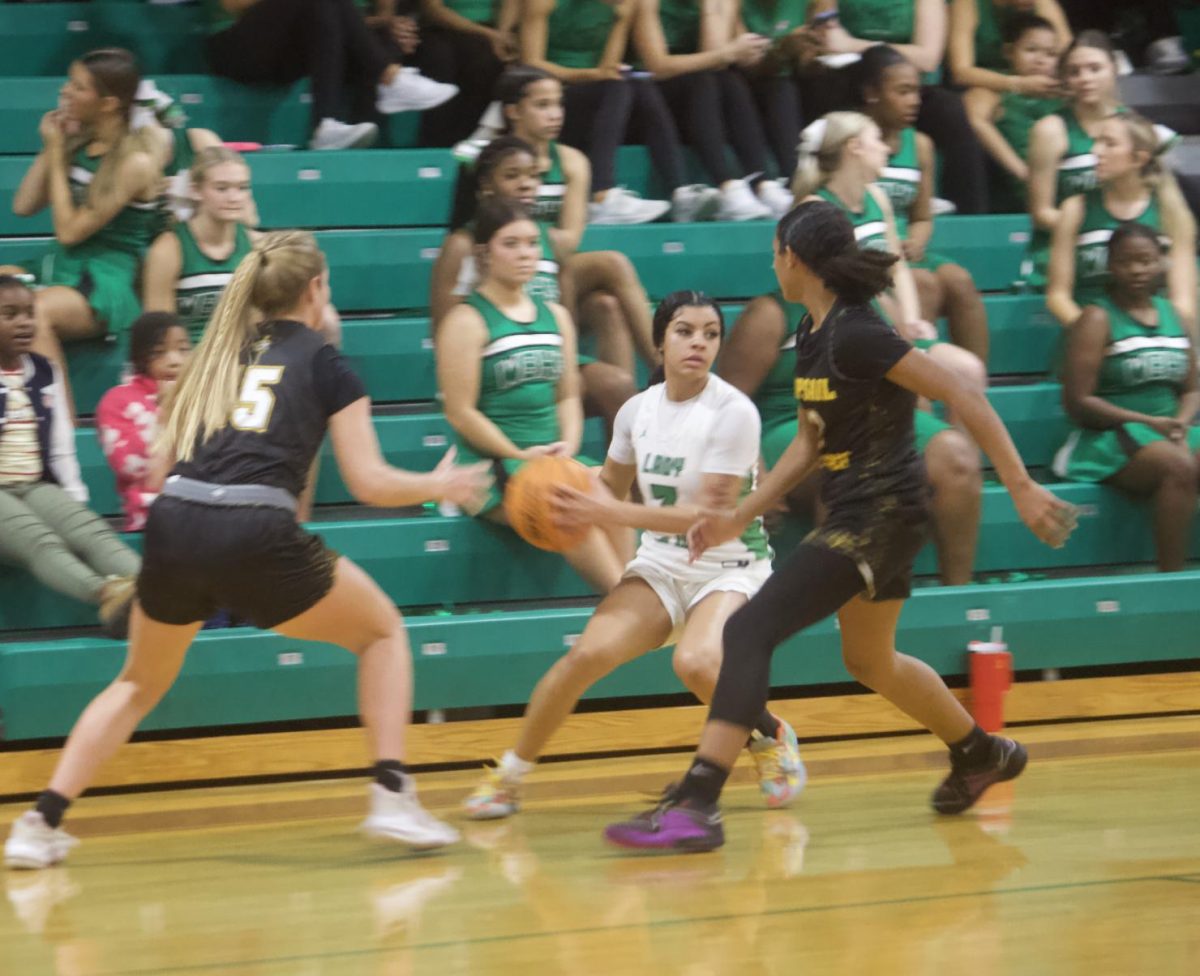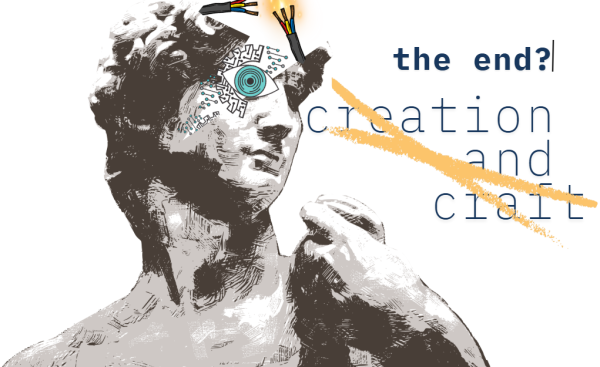Social Media and Society’s Negative Impact on Athletes
Photo by Savana Moore
Junior Kearstin Herring sits on WBHS bleachers
Nov 7, 2022
It is becoming increasingly apparent that social media negatively correlates with mental health, especially among teenagers, high schoolers, and young athletes especially. Social media is a powerful tool and can impact everyone differently. A good amount of people affected by these social media standards are athletes. Some athletes get caught up in social media drama or compare themselves to people with a more significant following. Of course, social media can be a good and a bad thing, depending on its use.
Isabel Seip, a sophomore tennis player, had a negative experience surrounding some rumors that were started about her on social media.
“Someone started a rumor about me that I was a coke addict,” said Seip. “I did coke at school, I gave it to everyone, I sold it, I was psychotic… I stole her debit card, just a bunch of lies. It made me feel embarrassed and upset. It happened on the second day of school, and it’s still at the top of my mind. When it comes to comparison, I’d say compare myself to other people all the time, every day, all day, because of body-image issues that were caused by always being told that I could change or be prettier by my peers, my parents, and teachers.”
Seip’s experience isn’t unique–so many students are plagued by rumors and self-worth issues rooted in social media usage. Junior Riley Bergeron had a similar experience struggling with body image and athletic ability.
“When I see some really good college volleyball players I tend to compare myself to them and it can be very degrading sometimes and I have to remind myself that I’m just a junior in high school and I have time to progress.”
It’s common for people involved in a sport to get invested in videos of others playing their sport better than them or even at the college level, leading to unhealthy comparisons and unreasonable expectations.
“Some of my teammates make rude comments about me behind my back,” said Bergeron. “When they make those comments it sometimes affects the way I play and that causes me to be angry with myself because I didn’t play the best I could have played.”
She has had quite a few indirect comments that her teammates have made about her, these comments will sometimes get into her head and affect the way she plays, leaving her angry with herself because she didn’t play her best. It’s best not to let these comments get to you, the majority of the time they make these comments just to get to you, like how Bergeron says,
“Social media can impact you in many ways but try not to let things get to you and don’t always believe what others say because you know yourself better than they do.”
Christian Hardy, senior and captain of the wrestling team, has also dealt with the struggles of being an athlete on social media. More specifically, the spread of rumors.
“Some people were starting rumors about me, saying I did something that I didn’t do, and a few of my buddies noticed and brought it up to me. I saw that it was affecting them, which was what created stress. It also made me question who was on my team and if I could even trust them since it got back to me that the person spreading the rumors was someone on the wrestling team.”
When it comes to the differences between boys and girls and advocating for mental health and eating disorders, there is a clear separation. Women are typically more apt to be open about their struggles, while men are usually pushed to stay quiet about it. Hardy used to struggle with body image issues and self-worth as well.
“I started lifting and working out to help with my body image and self-esteem,” “I feel like it’s really helped me deal with my mental health and things like that, and I know a few others who have done the same.” Hardy says, “I feel like girls are more encouraged to talk about their struggles with that kind of stuff, and boys are supposed to keep it to themselves, suffer in silence, and that’s seen as being strong.”
In the end, it matters most that you know your worth, know that you are better than they make you out to be, and remember that they don’t know you as well as you know yourself.


